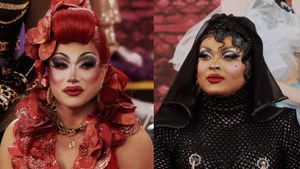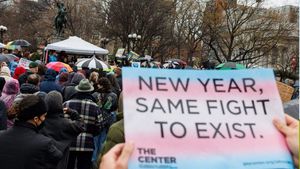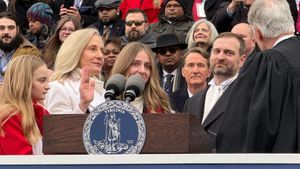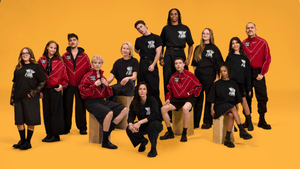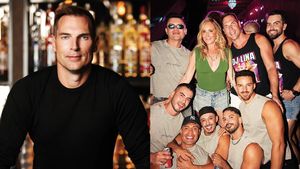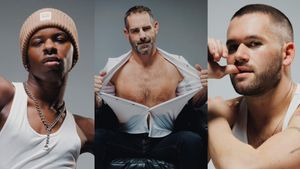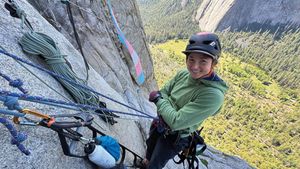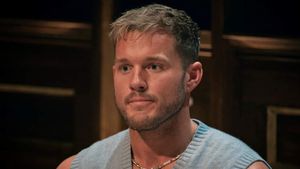We often think of immigration as a specific type of one-directional travel that occurs only once a lifetime. But the reality is often better reflected as trips crisscrossing back and forth, even if later visits are taken by offspring rather than the original migrants. Every time you travel you can’t help but take a bit of that place with you and leave a little something behind. All those invisible strings connect our hearts to a place even after we’re gone.
DeVonn Francis was born in Virginia and now lives in New York City, but the 30-year-old gay culinary artist, advocate, and event producer has deep roots in the Caribbean, on the island his parents left: Jamaica.
One of the cultural elements of a place easiest to recreate elsewhere is its cuisine. As long as you have the recipes and access to the ingredients you can share a bit of your homeland with those who’ve never been.
That’s what Francis’s parents did for him. His father ran a Jamacian restaurant and Francis and his mother cooked together and shared a love of Food Network shows. “So it’s always been a part of my life,” Francis says.
In New York City he found the Caribbean diaspora, which opened doors for him to go deeper into his heritage. “I was able to trace not only flavors of ingredients, but also stories around ingredients and like understanding how people came to be in certain places,” he recalls.
 DeVonn Francis in Jamaica Courtesy
DeVonn Francis in Jamaica Courtesy
A trailblazer at heart, Francis didn’t just want to map his own path back to the islands. He wanted to make space for his community to find passage back as well. “So I feel really excited about what we're doing with Yardy World,” Francis explains now. “I wanted to be able to really create a template or a roadmap for other queer Caribbean people…retracing their roots and tracing their heritage.”
While food itself is one ingredient in that recipe, so are “the stories and traditions that are typically passed down” when people cook or eat together. “The ways in which you invite people to come together kind of like family at the dinner table makes me feel a little bit more empowered to really learn about myself and to take my own history into my own hands,” he muses.
The activist sees Yardy events as growing a larger network of people with similar values and goals. “The reason why we were doing dinner parties or having events or making videos or content related to Jamaica, or related to immigrant experiences, is because we’re basically signaling to other people, ‘Do you relate to this? And if so, how can we coalition build together?’”
In 2023 Francis will be creating more culinary experiences and the discussions they inspire. “I imagine having our favorite artists collaborate on our menus, music, table direction, and creating food that reflects some of the new menu items I’ve been developing which is largely inspired by my recent trip to Jamaica with my family. There are dishes like cassava pudding baked in banana leaves with a pistachio crust, slow poached snapper, mussels with annotto and crab butter; it should always be decadent.”
 Courtesy DeVonn Francis
Courtesy DeVonn Francis
Referencing Black lesbian poet Audre Lorde’s essay “Uses of the Erotic: The Erotic as Power,” Francis argues pleasure is power, and “we all have the right to find and seek out pleasure and being able to do that makes you feel good and connected to where you are.” He wants to empower others to make those choices, and to foster food sovereignty, which he defines as “your rights to decide and determine what your own relationship to food is, to eating well, to having a connection to your health.”
In addition, Francis says, food sovereignty involves, “Figuring out ways to create pathways, not just to get food to people, but to teach people how to access the resources for themselves.”
Last year Francis launched a digital platform to “make Yardy World accessible to people who love our work but don’t live in New York.” Francis explains, “If we’re just creating events for people who can get to New York then we’re leaving a lot of people out of our growing family and that feels like a huge loss to me.”
As that family grows, Francis’s goal is to create job opportunities to historically marginalized communities like queer BIPOC. “How we do that [at Yardy World] is by creating products with ingredients and materials that can be sourced from regions and communities we support, pulling them into the supply chain and circulating revenue back to them — back to the island and the diaspora across the world.”
 Yardy World recipe cards feature DeVonn Francis's mom
Yardy World recipe cards feature DeVonn Francis's mom
Yardy World offerings include cards featuring recipes (and images of Francis’s mom) and the tasty and protein-packed YW Snack Mix, which Francis says “started as a joke about never getting to eat a real meal because we spend so much time cooking for other people. And then I thought, Why not create a snack that you can have when you’re really busy or don’t feel like cooking? The other part about that is we get to use ingredients that can be sourced from the Caribbean so that farmers and producers we source from get to benefit from each purchase.”
 Yardy World snack mix
Yardy World snack mix
This Lunar New Year Francis posted a photo series on Facebook with images of “what a celebration might look like in the Caribbean and how different ingredients impact our concept of what makes Caribbean food Caribbean.”
He says the experience “was a really valuable learning lesson because it helped me and the Yardy World team expand on the idea of what ‘Caribbean’ recipes look like. We took recipes that seem familiar and used the story of Chinese migration to Jamaica to tell a wider story of what Jamaica truly is. What most people don’t realize about Jamaica and the Caribbean at-large is its global history. The early influence of Taino people and their friction with Spanish settlers, enslaved African people who made the plantation economy possible, Chinese migrants, Indian spices, French, Dutch and British merchants and colonizers—so many of these historic and political factors are embedded in the foodways that shape the Jamaica we known today.”
From Your Site Articles
Related Articles Around the Web





 DeVonn Francis in Jamaica Courtesy
DeVonn Francis in Jamaica Courtesy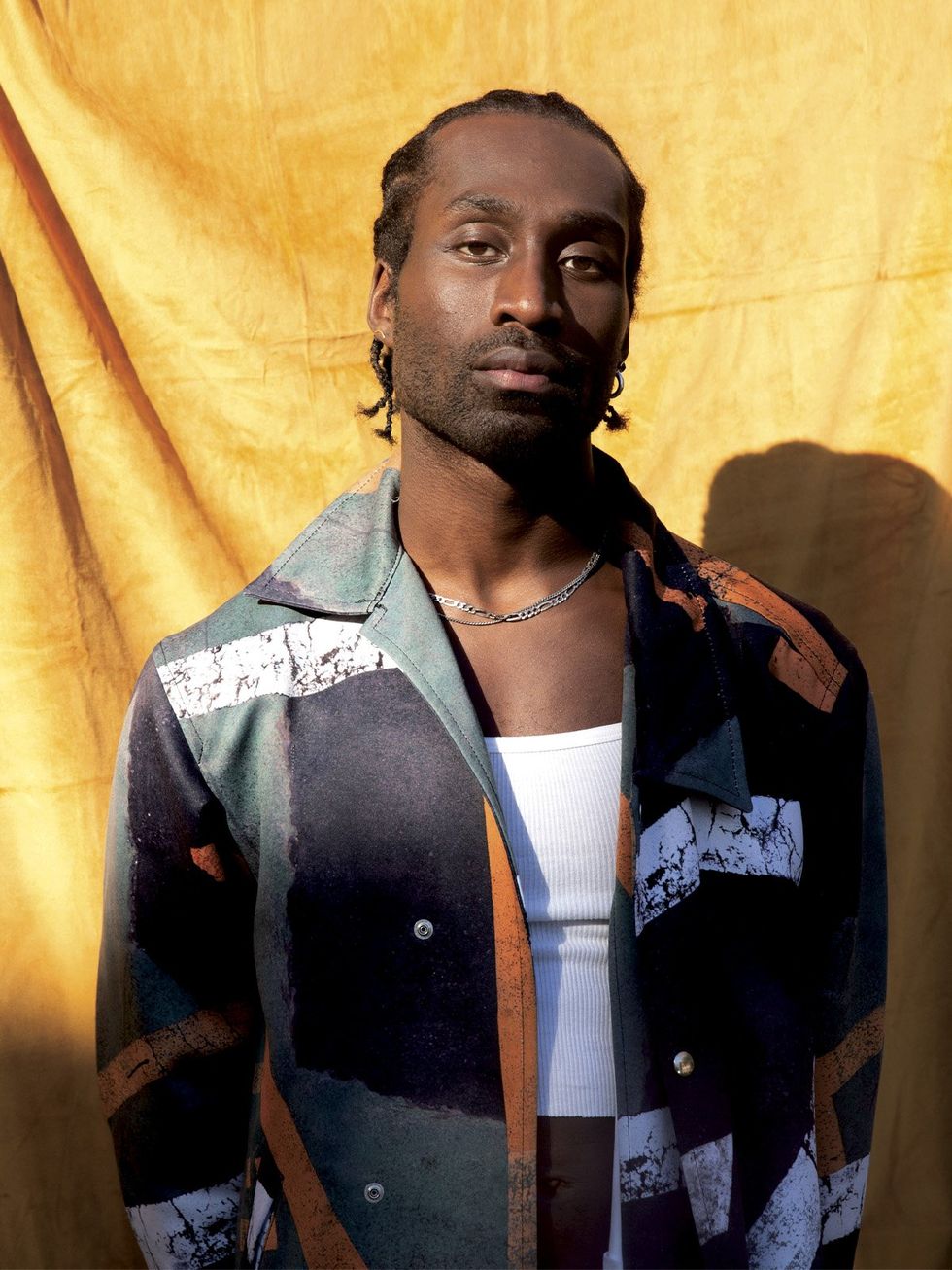 Courtesy DeVonn Francis
Courtesy DeVonn Francis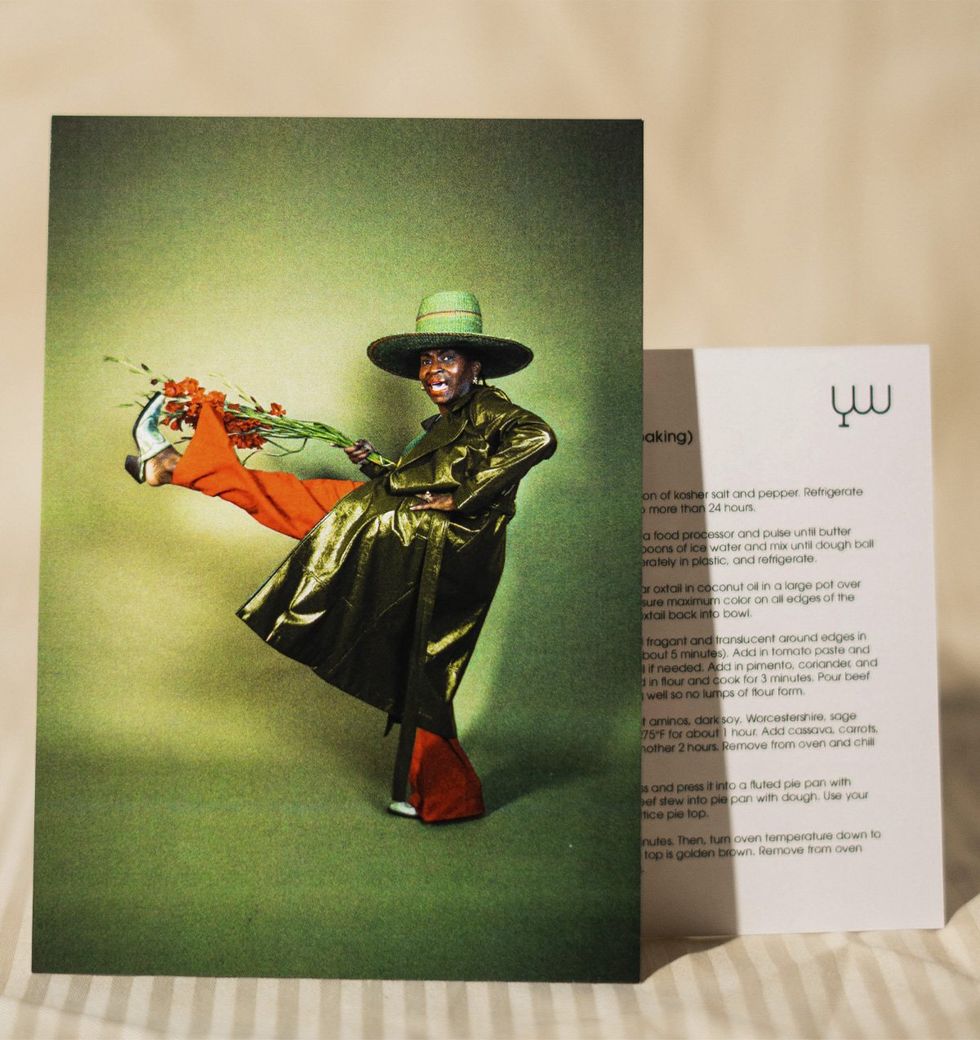 Yardy World recipe cards feature DeVonn Francis's mom
Yardy World recipe cards feature DeVonn Francis's mom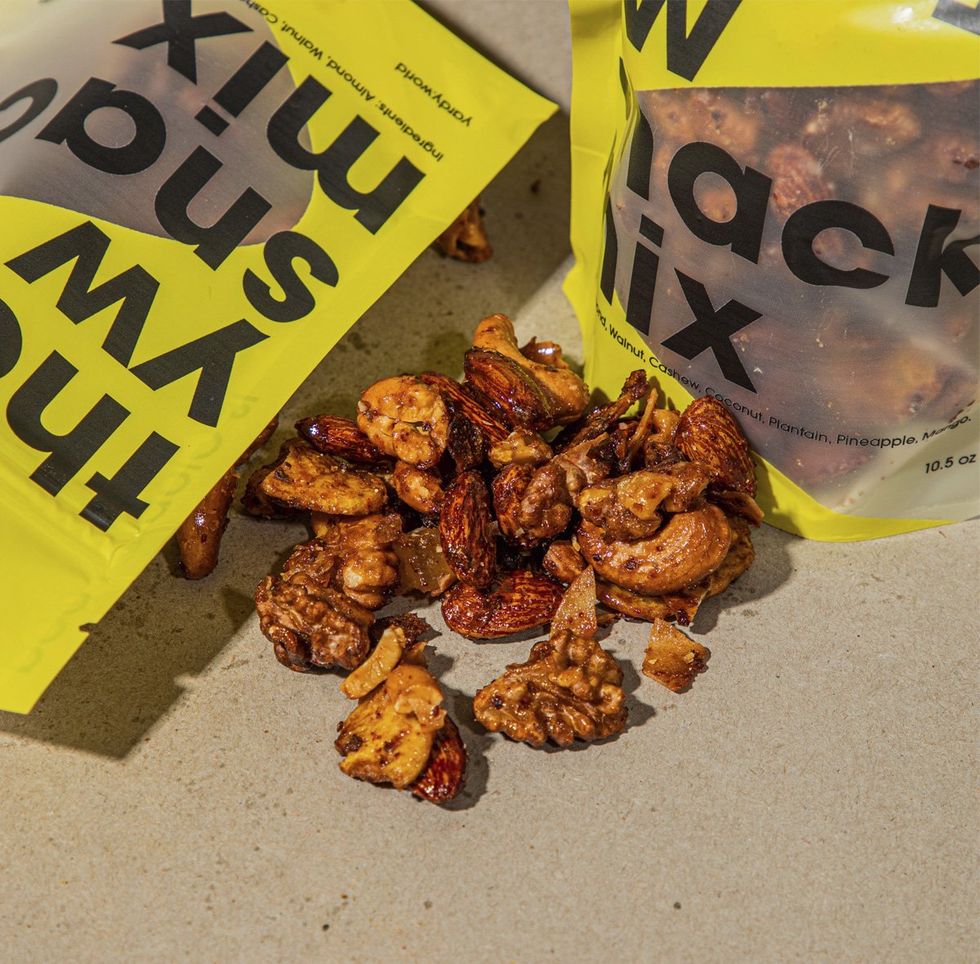 Yardy World snack mix
Yardy World snack mix





































